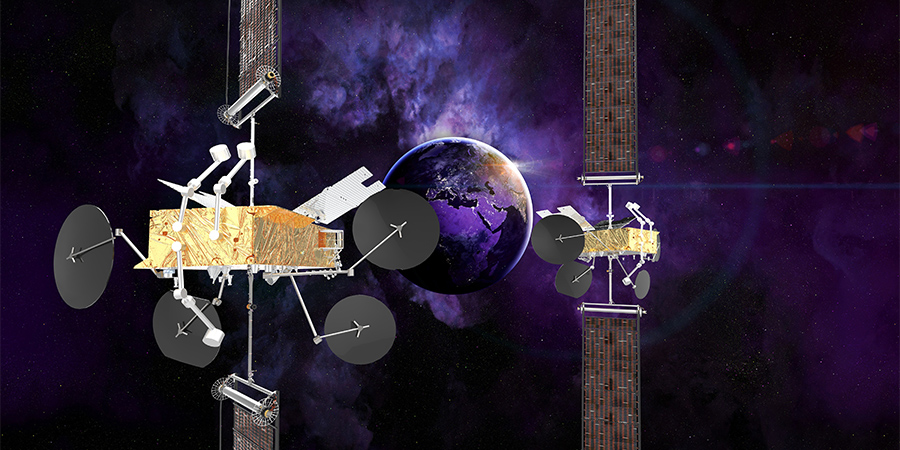Intelsat, operator of the world’s largest integrated satellite and terrestrial network, and Thales Alenia Space have signed an agreement to build two software-defined satellites designed to advance Intelsat’s global fabric of software-defined GEO connectivity as part of its 5G software-defined network.
Intelsat 41 (IS-41) and Intelsat 44 (IS-44), the two next-generation software-defined satellites scheduled to be in service in 2025, are an essential advancement in Intelsat’s 5G software-defined network designed to enable greater agility, flexibility, and orchestration across the edge, satellite, and core. They will join the two previously announced Airbus-constructed software-defined satellites, Intelsat 42 (IS-42) and Intelsat 43 (IS-43).
“Intelsat’s standards-based, open-architecture network design facilitates the incorporation of the best technology at any given time, further bolstering network resiliency,” said Stephen Spengler, CEO of Intelsat. “With the addition of Intelsat 41 and Intelsat 44, in partnership with Thales Alenia Space, Intelsat will blanket the earth with software-defined satellites, progressing the world’s first global 5G software-defined network, designed to unify the global telecoms ecosystem.”
Intelsat 41 and Intelsat 44 will be based on the Thales Alenia Space’s innovative Space Inspire product line allowing seamless telecommunications mission and services reconfiguration, instant in-orbit adjustment to broadband connectivity demand, and superior video broadcasting performance while maximizing the effective use of the satellite resources.
“Our relationship with Intelsat has been so meaningful knowing that our attractive Space Inspire software-defined solution will contribute to the realization of Intelsat’s global 5G software-defined unified network,” said Hervé Derrey, CEO of Thales Alenia Space. “We are proud that our advanced satellite technology will play a significant role in Intelsat’s vision to reimagine the global telecoms ecosystem.”
The contract enables the continued advancement of Intelsat’s planned global software-defined satellite-based network, adding high-speed dynamically-allocated connectivity across Africa, Europe, the Middle East, and Asia for commercial and government mobility services and cellular backhaul.










